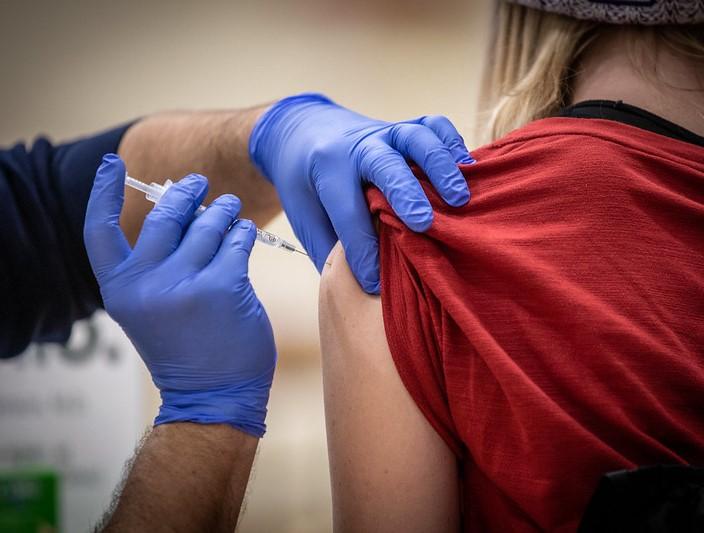Over the weekend both the Food and Drug Administration and the Centers for Disease Control and Prevention (CDC) gave the green light to Johnson & Johnson's COVID-19 vaccine, making it the first one-dose option available to Americans.
The newly approved vaccine is expected to arrive in arms as soon as tomorrow. A total of 4 million doses will be administered across the United States by the end of the week, Reuters reported. Johnson & Johnson previously said it aims to have 20 million doses delivered to Americans by the end of the month, and 100 million doses by June.
Biden administration officials warned that availability of the Johnson & Johnson vaccine will be sporadic and limited, most likely until April.
'Very real threat' of variants
The welcomed news of a third COVID-19 vaccine was tempered today by warnings from CDC Director Rochelle Walensky, MD, MPH, who said during a White House press briefing that recent declines in case counts are stalling.
"The most recent 7-day average of cases, approximately 67,200, represents an increase of a little over 2% compared to the prior 7 days," said Walensky. "Please hear me clearly—at this level of cases with variants spreading, we stand to completely lose the hard-earned ground we have gained. These variants are a very real threat to our people and our progress. "
Walensky said the country cannot settle for 70,000 cases and 2,000 deaths per day due to the virus. She also said if states lift mitigation mandates, like mask-wearing, too quickly, the nation could see a fourth wave of virus activity before enough Americans are vaccinated.
Yesterday the United States reported 51,204 new COVID-19 cases yesterday, and 1,097 deaths, according to the Johns Hopkins COVID-19 tracker. In total, the country has 28,648,156 cases, including 514,216 deaths.
The latest CDC tracking on variants shows confirmed 2,400 B117 cases in 46 states, 53 B1351 cases in 16 states, and 10 P1 cases in 5 states.
Vaccine hesitancy among Black Americans
New data from Rand Corporation shows Black Americans, including healthcare workers, report high levels of vaccine hesitancy.
Only 40% of Black Americans polled (out of 207) said they would definitely get a vaccine. Further, one third of all survey participants agreed or strongly agreed that they would not get a COVID-19 vaccine, and an additional 25% said they did not know if they would get vaccinated.
Black Americans have been among the hardest-hit US groups during the pandemic, but government distrust and vaccine hesitancy remain a lingering problem.
Yesterday, Anthony Fauci, MD, director of the National Institute of Allergy and Infectious Diseases, said all Americans should get whatever vaccine is made available to them as soon as possible, stressing that efficacy rates among the Pfizer, Moderna, and Johnson & Johnson vaccines are not comparable.
The Johnson & Johnson vaccine, which was 100% effective in preventing deaths, was less effective in preventing mild to moderate illness when compared with the mRNA vaccines. But was tested when more variant strains were spreading, Fauci said yesterday on "Meet the Press."
"It's not the weaker vaccine. They are all three really good vaccines," Fauci said.
In other US news, the New York Times reports that, nationwide, COVID-19 testing is down by 30%, likely owing to fewer exposures, less travel after the holidays, the vaccine rollout, and pandemic fatigue.






















